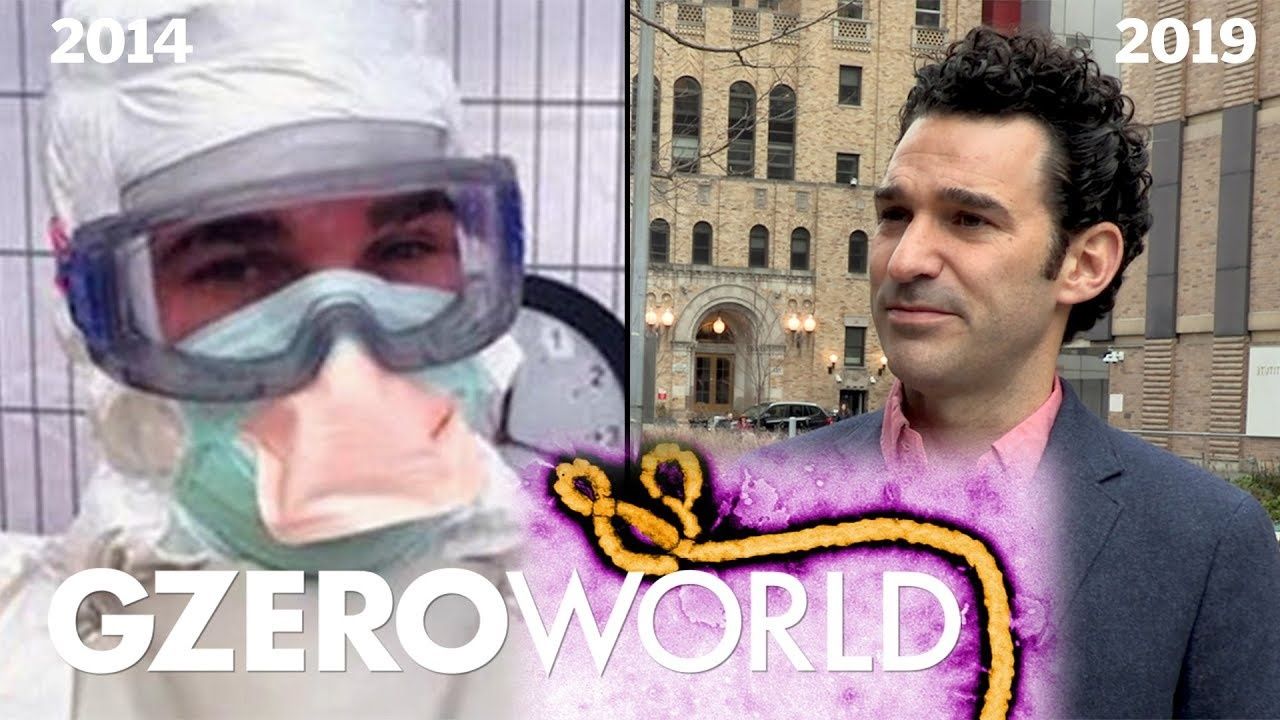Ebola Survivor Dr. Craig Spencer to GZERO: 'We didn't learn a lot from 2014‘
November 25, 2019

Ebola Survivor Dr. Craig Spencer to GZERO: 'We didn't learn a lot from 2014‘
In 2014, Dr. Craig Spencer became the first and only confirmed case of Ebola in New York City. He contracted the virus while volunteering for Doctors Without Borders in the West African nation of Guinea. The news caused a panic as health officials searched for anyone who might have come in contact with him—at a bowling alley, on the subway, and in his neighborhood.
In the end, there were no other NYC cases and Dr. Spencer recovered, but the experience was both traumatic and eye-opening for him. As he marks the fifth anniversary of his ordeal, Dr. Spencer talked with GZERO Media about his life today, his reflections on that moment, and his belief that too few lessons were learned from the 2014 Ebola outbreak.